Education
8 Expert Tactics for How to Prepare for a Job Interview

Preparing for a job interview can be nerve-wracking, but it doesn’t have to be that way. The experts at Glassdoor share their best strategies on how to prepare yourself before you walk into the office. From compiling your resume and researching the company to practicing your elevator pitch and mastering the art of small talk, these are some of the most important steps you can take to ensure you’re ready to ace your interview.
Step 1 – Get an understanding of the job
To relieve some of your stress, you need to get an understanding of what the job is about and what will be expected of you. In other words, do your homework! Find out as much information as possible about who will be interviewing you and what they are looking for from candidates. This research should give you insights into both how you can present yourself as well as insight into how to craft responses that emphasize your strengths but downplay any weaknesses.
Step 2 – Understand your competition
When searching for jobs, you may be surprised how many job postings require you to apply through automated HR software. If you want to secure your dream job, you must stand out from other applicants. We sat down with Read to Succeed founder and CEO Cheryl Holmes to learn how automation can relieve stress and ultimately help job seekers find their dream careers. See our Q&A below. If we don’t reach out to interview or publish you during your campaign, please contact us about running an additional promotion after your campaign ends!
Step 3 – Research the employer
HR automation is transforming recruitment, making it more efficient and accessible than ever before. And, as technology continues to permeate every aspect of our lives, that trend will only continue. The Read to Succeed program was started by State Farm in partnership with Choose2Matter and contains career advice from more than 100 CEOs on everything from networking tips to interview advice. It’s worth checking out if you want some top-tier job search tactics.
Step 4 – Think about your answers
The Prepare stage is all about getting ready. During your preparation, you will be able to visualize examples of how you would handle real-world scenarios. Asking yourself questions and asking others who have been there can only help with planning out your tactics. The better prepared you are, then, at interview time, you should feel more confident and know exactly what sort of job searching tools and techniques worked best for you. Remember that while we are used to visualizing physical objects (like running on a highway), it’s just as important if not more so to be able to visualize abstractions like feelings, emotions, or fears. These non-physical perceptions make up most of our mental lives; without them, we would go crazy much faster than trying to survive off of visuals alone!
Step 5 – Create a list of questions
These are questions that you should have prepared beforehand before you even set foot in an interview room. It is important to have as many relevant questions ready as possible so that they can be asked if time permits. This will reinforce your ability to see things from multiple perspectives and allow you time to think of anything else that might be important during an interview. It also shows the interviewer that you care about them, not just yourself; and that goes a long way in establishing professional relationships.
Step 6 – Practice interview techniques
Before you head into your interview, you want to be sure you’re familiar with common interview questions and techniques. With that in mind, practice mock interviews with a friend or coworker who can give you real-time feedback. This is also an opportunity to try out different responses and perfect your script before heading into your interview. On average, 65% of employers say they use automated talent scoring when evaluating candidates; having robotic help is a Read To Succeed tactic you’ll want in your back pocket when it comes time for on-the-spot answers.
Step 7 – Network before you go in
The adage’s not what you know, it’s who you know is more true today than ever before. As more jobs are outsourced, filled by third-party recruiters, and automated through HR software, networking is more important than ever as job seekers find themselves at an information disadvantage. The good news? Networking isn’t as scary or intimidating as it sounds — especially if you start early and use technology to your advantage. To help you out, we’ve got eight expert tactics that can help increase your chances of scoring an interview in today’s increasingly competitive job market.
Step 8 – Dress professionally
While there’s no one-size-fits-all job interview dress code, HR automation will take you in good stead if you’re aiming for an entry-level job. Pay attention to whether your prospective employer wants you dressed formally (suits are standard), or professionally (business casual is fine). In many cases, your recruiter will inform you of what type of attire is expected, so follow his/her advice. You want to present yourself as being on top of things professional attire shows that. However, do remember that your personality matters more than anything else; it’ll be what helps clinch you a job offer.
Final Thought
Preparation and mindset are everything in an interview. Make sure you have all your ducks in a row before you go into that room. If you know what’s going to be asked of you, it will reduce your anxiety and allow you to focus on presenting yourself and your skills at their best. Of course, there is some aspect of interviewing that is just out of our control; however, most things fall within our ability to prepare and gain control over. While we may not be able to completely control how an interview goes, we can decide how much effort we want to put into preparing ourselves and it is within our power if we choose wisely.
